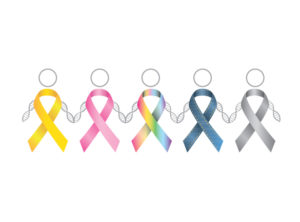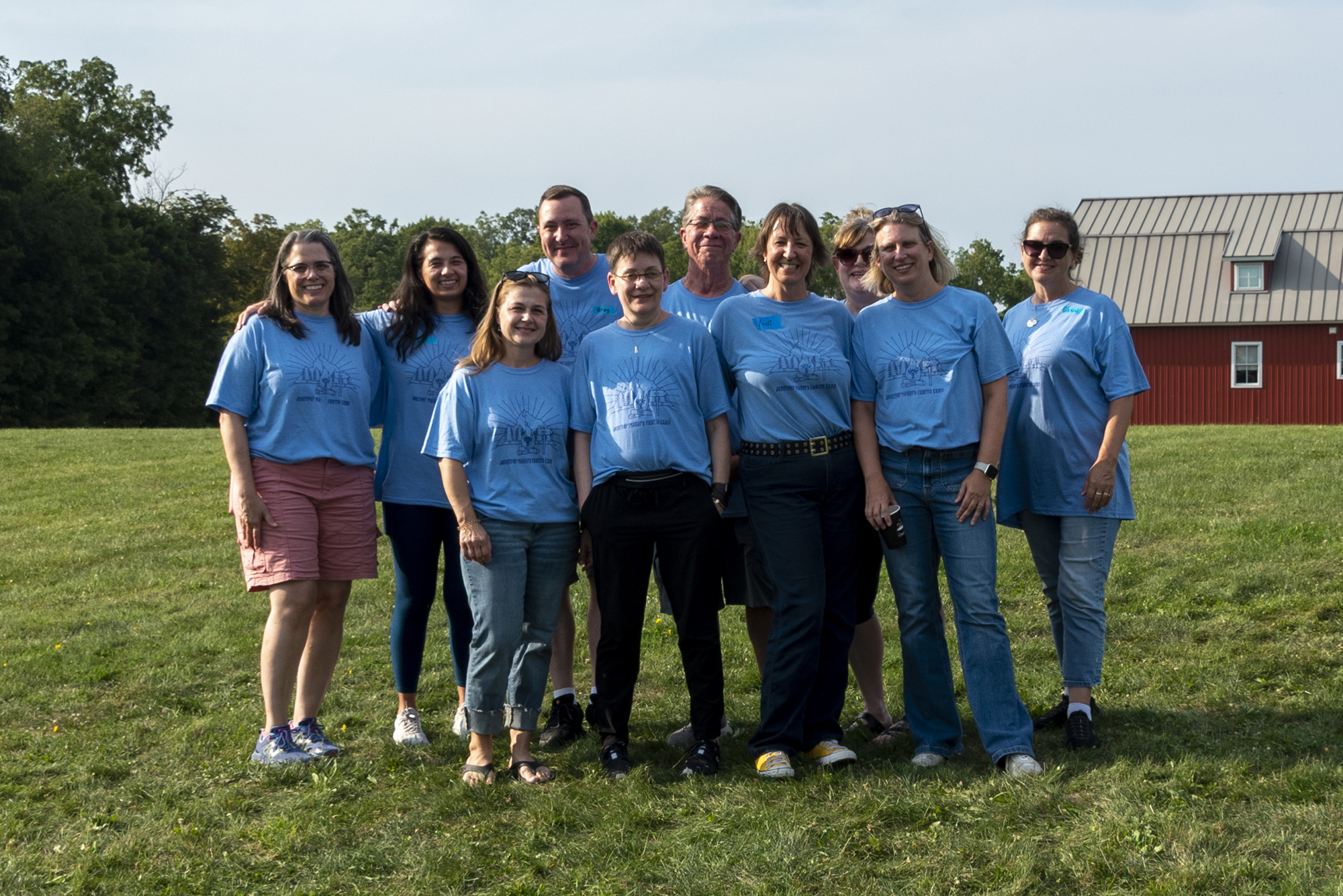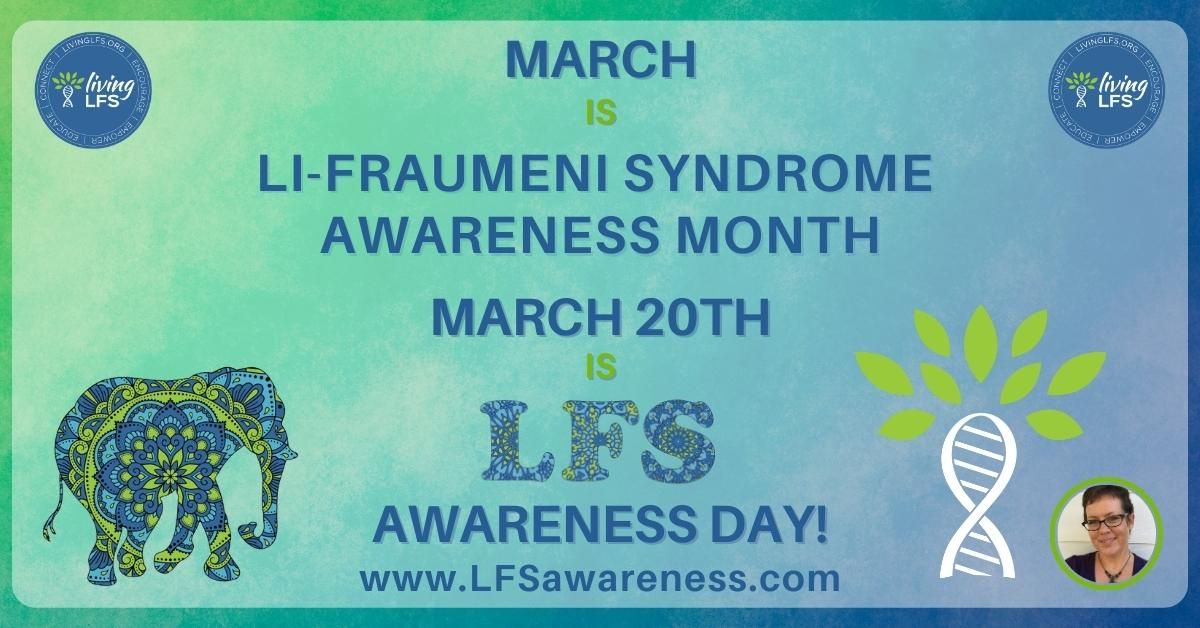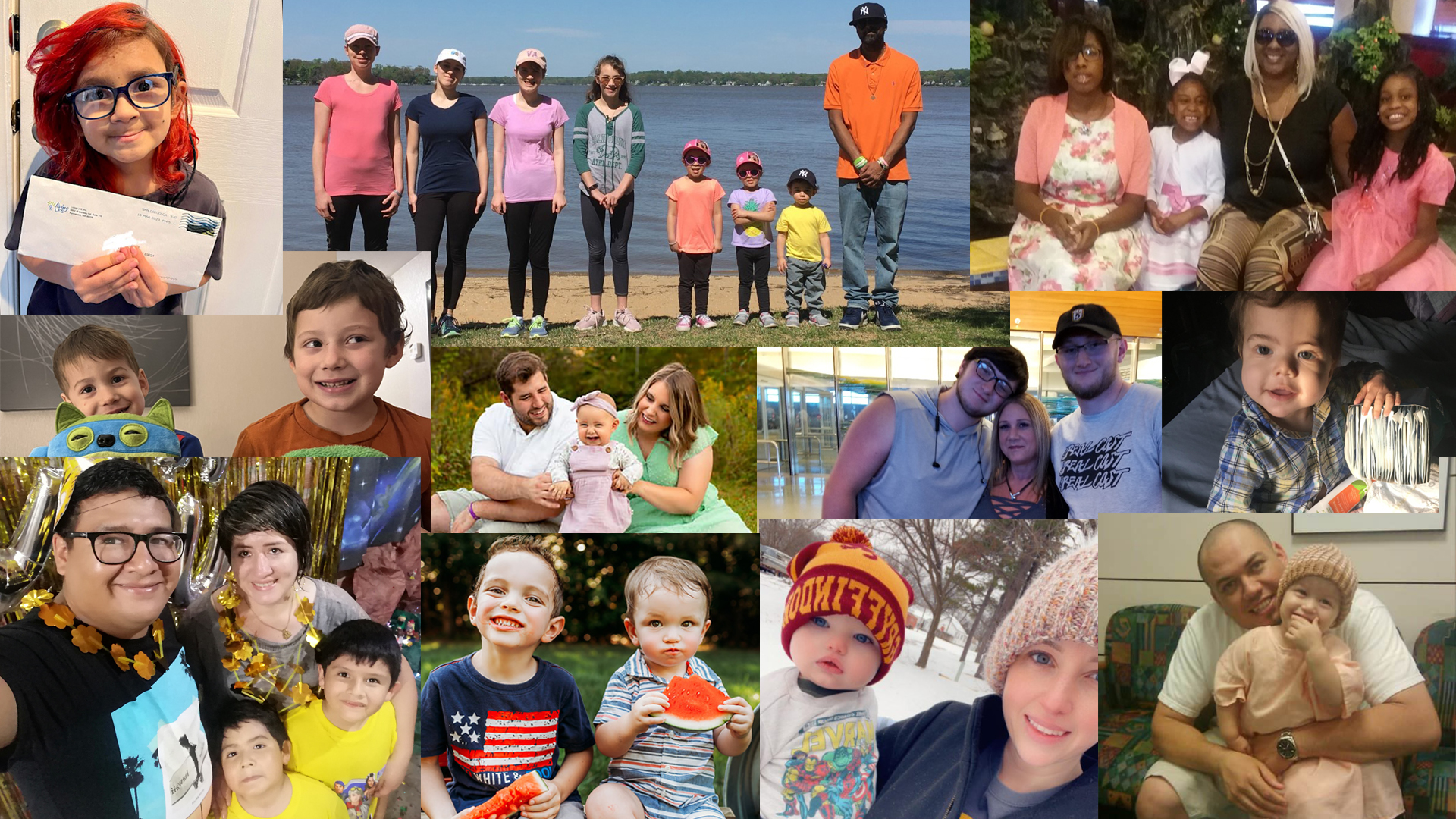Living with LFS can present challenges to the healthiest of family relationships. Many families with LFS have to find a way to adjust to their ever changing health but to their relationships as well.
Cancer changes people's priorities, their outlook on living and surviving and often times it leaves permanent physical scars. The emotional scars are not as apparent, but follow each family member in different ways. When you have LFS, the threat of cancer becomes a lifestyle- a consideration every day, for the future or even the ability to try and plan the future. Dealing with LFS encompasses emotions, healthcare, mortality, finances, physical pain and change. It affects our jobs and our ability to work which has an impact on finances. It affects our insurance choices, our employment choices, our free time and vacation(if even possible) choices, our residence choices. It affects our social circles and our spiritual circles. Unlike the portrayal of cancer in the movies, there isn't always a neat way to bundle up how families cope.
Just as every person deals with the diagnosis and living with LFS differently, families deal with LFS differently. Dr. Gary Wood is Clinical Psychologist who lives with another hereditary cancer syndrome called Von Hippel-Lindau(VHL). It is a mutation of a different tumor suppressor gene. He helps families with VHL conquer some of the issues they face, which are all too similar to those faced with LFS. Dr. Woods point out that "the family is not unlike a person. When there is an event, they react. Each person in his or her role tries to absorb it in his or her own way.
For example, the “blamer” who comes across as angry is in fact fearful. The best approach to use for the “blamer” is reassurance to calm their fear, not to confront. That will just cause a power struggle.
In the case of the “placator”—the syrupy sweet person who absorbs all the blame, very humble, all-my-fault, blame-me—these individuals often need more firmness in facts and structure. Otherwise they will become like a sponge. They will absorb all the emotion and become very sick physically.
The “distractor”—the prototype is an adolescent who is routinely diverting the attention to another subject and away from the subject at hand like VHL. They may be in the room but they are looking away, changing the subject, uncomfortable. Often the distractor needs a stronger person to lean on and to structure things."
When we have cancer or a loved one has cancer we react. We do not always react in a way that we would expect, that family members would expect or that can be predicted. We therefore cannot expect family member to react in an expected predictable way. All we can do is try to have a firm grasp of what we need, what we expect and take steps to obtain that. Sometimes you find support in unlikely places, sometimes the same family member who is always there for you, continues to be your rock of support. It is OK to feel disappointed, let down and angry that family members do not view LFS the same way you do. They might feel disappointed or angry that you are not reacting as expected. The most important thing is to get through this step. Sometimes it will feel lonely and isolating. But then when you least expect it, you will find the support and hope needed to get through. The best possible outcome is when you use that experience to help support someone else who is going through the journey.
Many sites and clinical cancer centers have resources to help families cope with cancer, some links are listed below this post. There are virtually no resources for families who have multiple family members suffering cancer at the same time or for someone who is on their 7th cancer or for someone who was just diagnosed with LFS and has absolutely no family history of cancer- but just learned what LFS means and that they have it. Dana Farber Cancer Institute- one of the leading LFS clinics here in the US has on their website some guidance when dealing with relationships after cancer. The full article can be seen using the link below- but the recommendations are to be open and honest, talk about it and get help if needed. Yet the most practical and relevant article I read was published through the Mayo Clinic website. It suggested 9 tips for repairing relationships. Between the 2 articles- there is some really good advice that can be adapted for the LFS Family- the Dana Farber advice is in bold, the Mayo Clinic advice is in italics.
Be Open and Honest
Your LFS status is yours. The tricky part is that it is hereditary- which means one of your parents could have the mutation. It also means one of your grandparents and other family members might also have the mutation. It is up to you who you share this information with. If you feel it is your responsibility to let family members know, there are resources to help you share this information below. Although there is no cure for LFS, there are ways to screen for cancers to catch them early if they develop. It also gives each person the information needed to make life decisions. The information will not always be welcomed. There are many family members who would rather not know. But that is their choice. Think about how you might feel if one of your family members knew they had LFS and chose not to share it with you. They are very tough personal decisions. All we can do is be honest with ourselves and do what we think is right for our family.
Let Others Know What To Expect of You. This prevents a lot of stress. Family members can't always see what you are up to doing and not up to. Establishing boundaries and expectations helps open the lines of communication. If keeping things at a normal pace is healthier for you, then you may have to let people know you don't want to be coddled. If you are struggling, your health may depend on letting others know you aren't up to certain roles or responsibilities. Just because it is your or your family's 5th, 6th or 7th cancer- does not make it any easier or less challenging to deal with. In many ways it is tougher because you know kind of what to expect.
Be Patient With Others. Remember that your family loves you. Everyone shows worry and love in their own way. They may mean well but have to come to terms with yet another cancer or new diagnosis of LFS on their own terms. It may not feel as urgent to them. Just as you found your way to the place you are now, each person has their own path and no 2 paths are ever the same.
Keep the Friendships that Matter. Family and Friends may not be as supportive of you as you expected. They may withdraw and you have to let them. This is not the time to use precious energy on friendships that cannot handle the stress. Nurture friendships- even unexpected ones that give you the support you need. It is hard to have to do this over and over- but with LFS, you need the reliable friendships and that need and your need may change from time to time or cancer to cancer.
Talk About It
Start the Conversation. People don't know what to say, so they don't say anything. Let people know if you want to talk about it or would prefer not to talk about it right now. Sometimes you just have to take the first step. Most people can't fathom cancer- much less knowing you could possibly have many cancers throughout your life.
Plan What You'll Say. Think about what you are comfortable sharing with family, friends and even acquaintances. Plan a script in your head so you will be ready to answer questions about LFS, cancer or your health. If there are subjects you don't want to discuss- practice saying you are not comfortable talking about that or plan a way to change the subject.
Stay Involved When You Can. Sometimes just getting out and doing a routine activity with friends can be a welcome diversion. There are times when feeling normal and getting out there is just the right medicine. Be prepared that at times, although surrounded by people- it is normal to feel isolated and alone in your experiences.
Get Help
Accept Help. There is no award for bravery and getting through cancer alone. The award is surviving. When a LFS family faces cancer- it is rarely the first time and many have the feeling it will not be the last. Let others help- cook dinners, do yardwork, or pick up groceries. Support pages like Caring Bridge, Care Pages or on Facebook can help you voice a need and let people fill in where they can help you.
Seek out Support Groups. Since LFS is so rare- odds of running across another person with the syndrome is pretty rare. There are a couple of support groups online that can help you get in contact with others who can relate to the rare journey you face. These people can be a lifeline in very stressful and uncertain times or really good comic relief right when you need a laugh.
Facebook LFS Support Group
UK TP53 George Pantziarka Trust Forum
MDJunction LFS Support Group
Get Professional Help. Not many people are faced with the emotional burden of dealing with LFS. It is OK to be overwhelmed, depressed, and uncertain of the future. It is ok to get help when it seems to be too much. Counselors and trained professionals(clinical social workers or psychologists) can help you find the balance and get back to a quality of life. Sometimes it is overwhelming trying to decipher what, how, where to get screening, look for treatment or get help with LFS. Genetic Counselors are professionals who are trained to understand the scientific and emotional implications of dealing with LFS. To find a Genetic Counselor near you- go to the National Society of Genetic Counselors.
There is no right or wrong way to face LFS. Your journey is yours, sometimes someone who has been there can be a welcome companion.
Resources
Mayo Clinic- Reconnecting with Loved Ones After Cancer
Dana Farber- How Relationships Can Change After Cancer
NCI- Life After Cancer Treatment
Cure Today- Young Adult relationships
FORCE-Sharing Family History
VHL-another Herditary Cancer Syndrome- Talks about Family Dynamic



